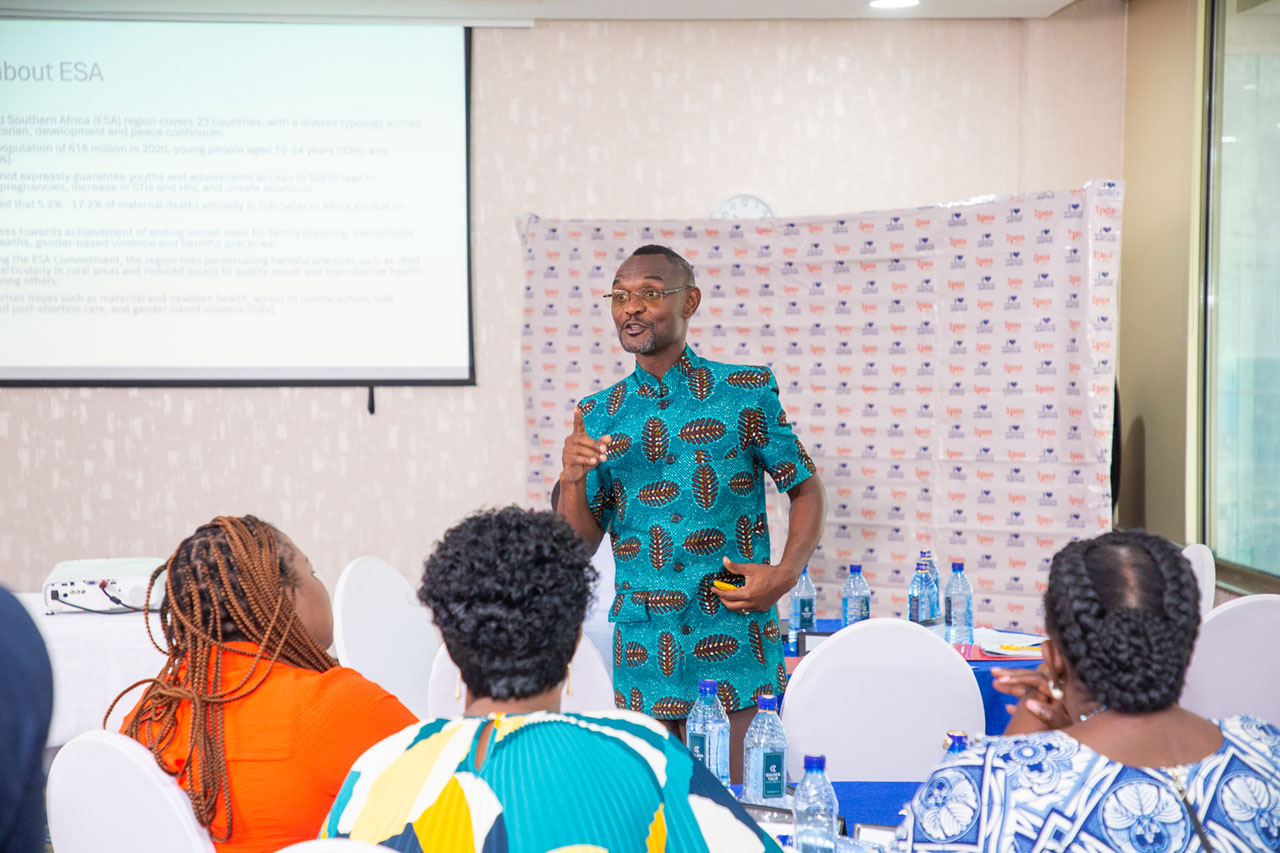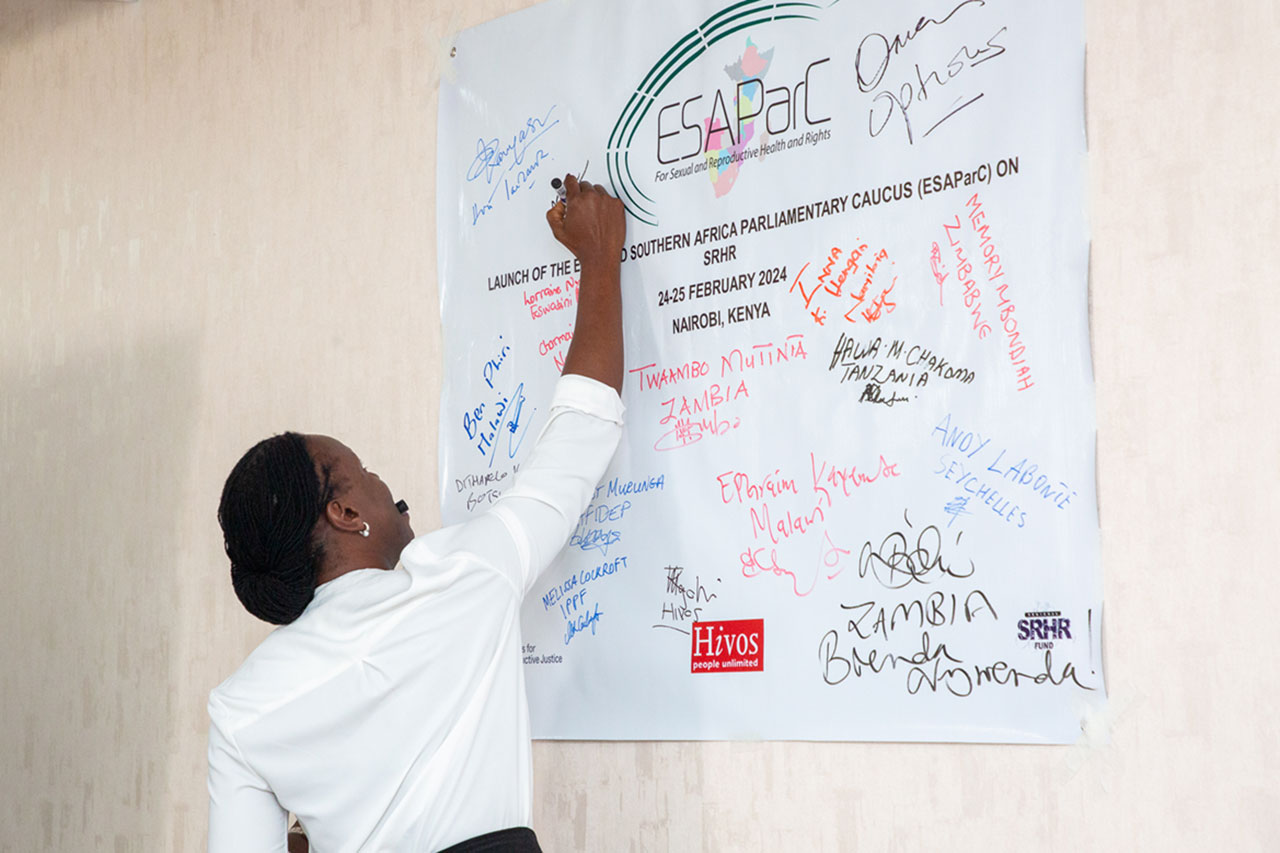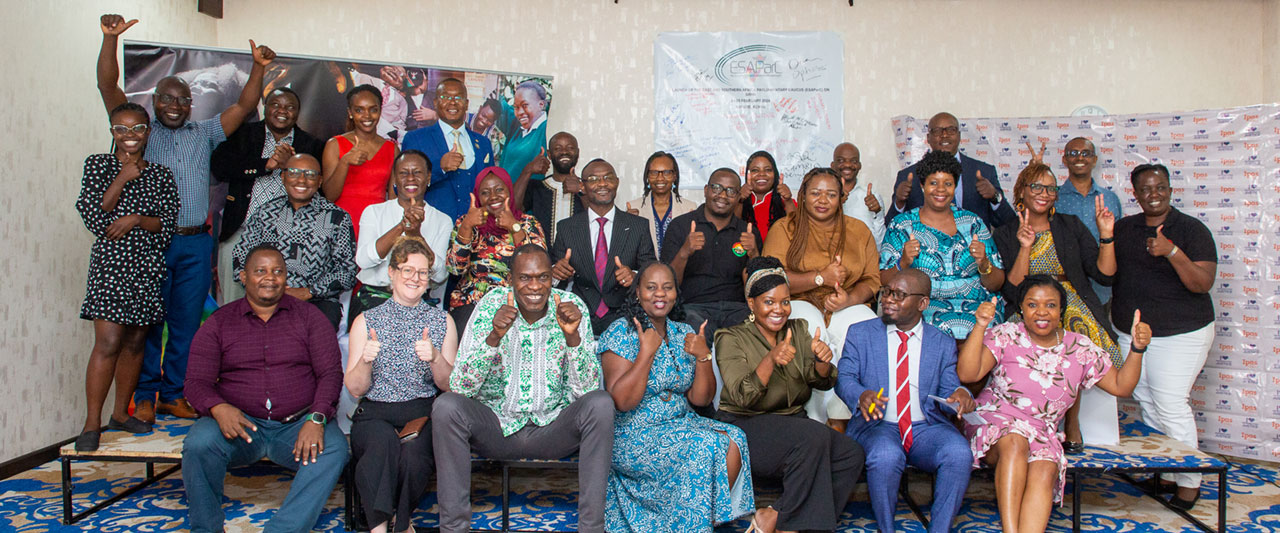In a landmark development for the Eastern and Southern African region, parliamentarians from diverse backgrounds and countries have united under the banner of the Eastern and Southern Africa Parliamentary Caucus on Sexual Reproductive Health and Rights (ESAParc).
Seeing the need for coordinated action to improve sexual and reproductive health and rights in the region, parliamentarians worked alongside Ipas Africa Alliance, Ipas Africa Southern Region and various strategic partners to form the caucus. The interim leadership includes representatives from Malawi, Zimbabwe, Zambia, Tanzania, and Eswatini, with plans to nominate more committee members for executive roles.
“
By uniting policymakers and stakeholders under a common vision, the caucus endeavors to create a future where sexual and reproductive health and rights are recognized as fundamental human rights, ensuring universal access to high-quality services for all,” said Clement Kolove, policy and programs advisor for Ipas Africa Southern Region, during the launch event held in Nairobi, Kenya.
Caucus will champion legislative reforms
The caucus aims to champion evidence-based policies, legislative reforms, and resource mobilization to ensure universal access to high-quality SRHR services and information.
“
Basically, we want to make sure that archaic laws that impede sexual and reproductive health and rights are revisited to make sure that we conform to the changing times,” said Hon. Ben Phiri, the chairperson of the caucus.

Following extensive consultations, parliamentarians from 10 countries, including Malawi, Zambia, Botswana, Namibia, Tanzania, Kenya, Zimbabwe, South Africa, Eswatini, and Seychelles, have already joined the caucus. Additionally, strategic stakeholders interested in SRHR initiatives participated in the launch event, underscoring the broad support for the caucus’s objectives.
The region is confronted with major challenges regarding sexual and reproductive health and rights. These include issues like teenage pregnancies and a lack of access to contraceptives, which continue a cycle that undermines the autonomy and well-being of women and girls. Additionally, restrictive laws and widespread abortion bans contribute to alarmingly high rates of unsafe abortions in the region.
The caucus has outlined key thematic areas of focus, including access to comprehensive SRHR services, adolescent and youth sexual health and rights, gender equality and women’s empowerment, reproductive rights and choice, SRHR in emergencies and humanitarian settings, SRHR and HIV/AIDS, comprehensive sexuality education, stigma and discrimination, research and data collection, and resource mobilization and capacity building.
The director of Ipas Africa Alliance, Dr. Angela Akol, reiterated the need to get back on track in ensuring access to reproductive health and rights for women and girls, especially because progress was rolled back with the restrictions that came with the COVID-19 pandemic.
“
“In recent times, we’ve witnessed a resurgence of various sexual and reproductive health crises affecting women, girls, and men across the continent. The COVID pandemic, with its prolonged lockdowns and school closures, particularly impacted girls, leading to an epidemic-level surge in teen pregnancies. This, in turn, resulted in school dropouts and subsequent challenges, such as diminished economic independence. These issues significantly affect the reproductive health and bodily autonomy of women and girls,” she explained.
She added that these reasons compelled concerned parliamentarians to unite and strategize on how to improve the reproductive health of women and girls in the region.



